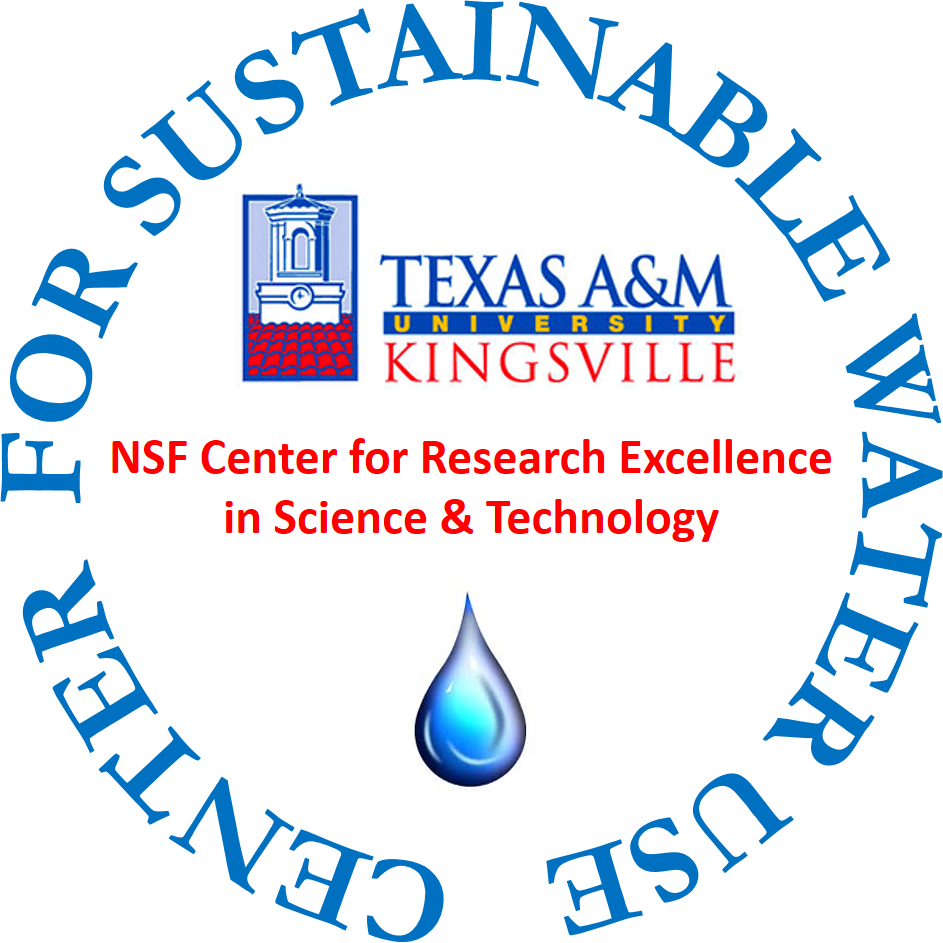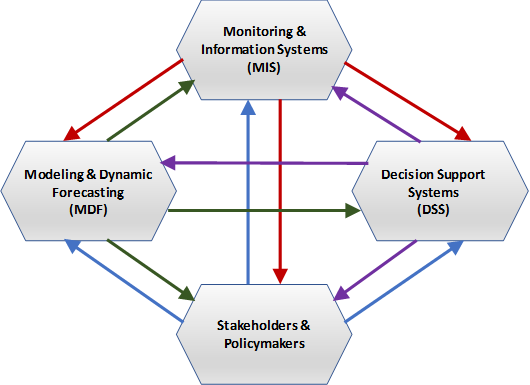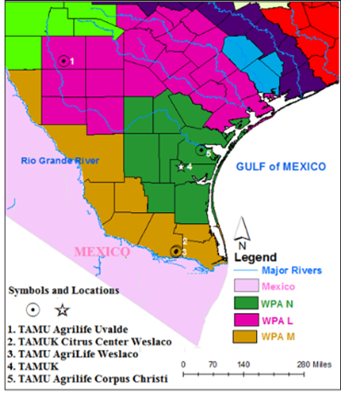CREST Center for Sustainable Water Use (SWU)

With a $5M National Science Foundation Centers for Excellence in Science and Technology (CREST) program award, Texas A&M University-Kingsville has established Center for Sustainable Water Use (CREST-SWU) effective September 1, 2019. This Center is engaged in regional multidisciplinary research, education and stakeholder collaborations to advance the understanding of sustainable water use in South Texas in the context of complex physical, hydroclimatic, regulatory and social-economical settings. Through the activities of the Center, investigators will stimulate the development and assessment of water availability and quality monitoring networks, models, and management tools that will promote sustainable water use in South Texas and similar semi-arid regions.
VISION for CREST-SWU is to establish a unique institutional framework for achieving regional multidisciplinary research, education, and stakeholder collaboration to advance understanding of water availability and use in South Texas, to stimulate development of water monitoring networks and water resource decision support tools, and ultimately to promote stakeholder-driven sustainable water use throughout the region.
The overarching hypothesis is that innovation and adoption of integrated and dynamic water resource management models will enhance regional stakeholders’ adaptive and adoptive capacities for improving food production without exacerbating the feedback effect of these activities on water availability and quality, for all purposes.
The Center for Sustainable Water Use is implementing a research, education and outreach program articulated in three subprojects. The Monitoring and Information Systems (MIS) subproject will develop comprehensive inventories of regional water availability, quality and demand. The Modeling and Dynamic Forecasting (MDF) subproject will focus on regional water availability and quality models, delineating metadata needed to develop and integrate these models. The Decision Support Systems (DSS) subproject will assess and disseminate decision-support tools to help regional stakeholders and policymakers determine the long-term efficacy of alternative water management strategies.

Three Subprojects and Interactions with Stakeholders/Policymakers
Integrated teams of researchers representing all subprojects will focus on three specific target demonstration areas: 1) the Wintergarden region (L), 2) the Lower Rio Grande Valley (M) along the Mexican border, and 3) Nueces and Corpus Christi Bays (N). The three subprojects will focus on bridging data gaps related to water management strategies (WMSs) currently being considered by the three regions Water Planning Areas (WPAs) in South Texas.

Three Water Planning Areas of South Texas
Teams of faculty and students from the Frank H. Dotterweich College of Engineering and the Dick and Mary Lewis Kleberg College of Agriculture and Natural Resources are developing and assessing water monitoring networks, models and management tools to promote sustainable water use in South Texas.
The Center’s leadership includes
- Mahesh Hosur (PI/PD), Professor, Mechanical and Industrial Engineering, Associate Dean for Research and Graduate Affairs,
- Lee Clapp, (Former PI/PD), Professor and Department Chair, Environmental Engineering,
- Selahattin Ozcelik, Co-PI, Professor, Mechanical and Industrial Engineering,
- Tushar Sinha, Co-PI, Assistant Professor, Environmental Engineering,
- Shad Nelson, Co-PI, Dean of the College of Agriculture and Natural Resources,
- Benjamin Turner, Co-PI, Assistant Professor, Agriculture, Agribusiness and Environmental Sciences.
Other senior investigators include
- Matthew Alexander, Associate Professor, Chemical and Natural Gas Engineering,
- Ambrose Anoruo, Professor, Environmental Science and Forest Ecology,
- Joseph Amaya, Visiting Professor, Chemical and Natural Gas Engineering,
- Juan Bezares-Cruz, Assistant Professor, Environmental Engineering,
- Ammar Bhandari, Assistant Professor, Soil Health, Soil Fertility and Nutrient Management,
- Humberto Perotto, Assistant Professor, Landscape Ecology, Geographic Information Systems, Remote Sensing and Unmanned Aerial Vehicles,
- Jianhong Ren, Professor, Environmental Engineering,
- Greta Schuster, Professor and Chair, Agriculture, Agribusiness and Environmental Sciences, and
- Nuri Yilmazer, Associate Professor, Electrical Engineering and Computer Science.
